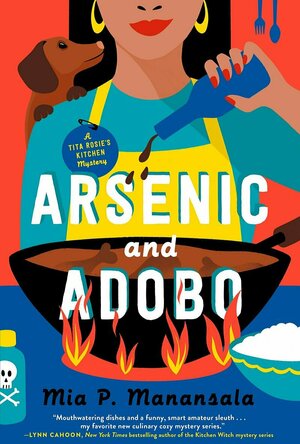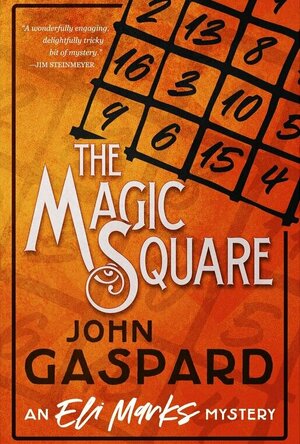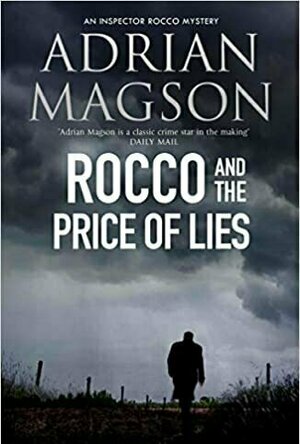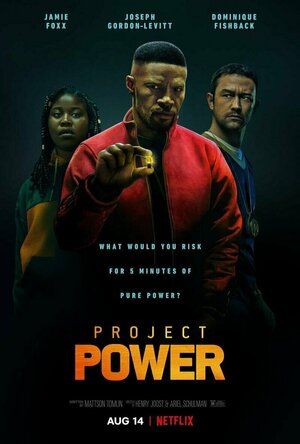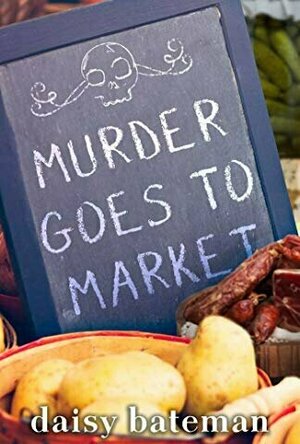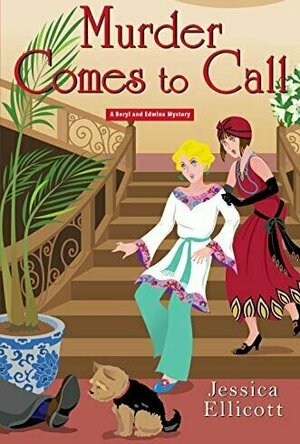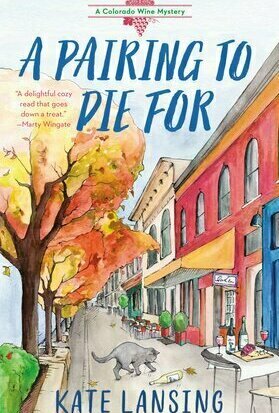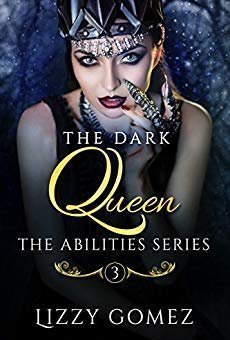Search
Search results
Mark @ Carstairs Considers (2484 KP) rated Arsenic and Adobo in Books
May 5, 2021
Murder of an Ex
After a disastrous breakup with her fiancé, Lila Macapagal has moved back to Shady Palms, Illinois, and is trying to help her aunt save her Filipino restaurant. One issue the restaurant is having is Derek Winter, Lila’s high school sweetheart who has becoming the local food critic and has written several nasty reviews of Tita Rosie’s Kitchen. When he comes back for yet another meal, he winds up dropping dead in his meal. Now the police are looking at Lila as a murderer, Tita Rosie’s Kitchen is closed until further notice, and Lila feels like the only hope of a happy ending is figuring out what is going on herself. Can she keep herself out of jail?
This is a solid debut. The mystery starts off quickly, and Lila learns plenty of secrets on her way to uncovering what really happened. The climax is suspenseful and creative. The characters are all strong. We even learn a bit more about Derek that makes him a little sympathetic although not completely likable. The rest of the cast is strong. A few supporting players blend together, but that is done on purpose, and we see glimpses of their individual personalities. We do have the beginnings of a love triangle here. Some of Lila’s friendships are so strong already, they help make those characters more real for us. I did feel a few of the themes of the book weren’t quite as well developed as I would have liked. Hopefully they will be explored more in further books. If the descriptions of food make you as hungry as they made me, you’ll be happy to see the four recipes at the end of the book. This is a strong debut, and I already can’t wait to find out what happens next to the characters.
This is a solid debut. The mystery starts off quickly, and Lila learns plenty of secrets on her way to uncovering what really happened. The climax is suspenseful and creative. The characters are all strong. We even learn a bit more about Derek that makes him a little sympathetic although not completely likable. The rest of the cast is strong. A few supporting players blend together, but that is done on purpose, and we see glimpses of their individual personalities. We do have the beginnings of a love triangle here. Some of Lila’s friendships are so strong already, they help make those characters more real for us. I did feel a few of the themes of the book weren’t quite as well developed as I would have liked. Hopefully they will be explored more in further books. If the descriptions of food make you as hungry as they made me, you’ll be happy to see the four recipes at the end of the book. This is a strong debut, and I already can’t wait to find out what happens next to the characters.
Mark @ Carstairs Considers (2484 KP) rated The Magic Square in Books
Jul 16, 2021
Who Made the Body Appear at the Magic Convention?
Eli Marks and his uncle, Harry, are out of town at a magic convention. They’ll be spending a lot of time in the dealer’s room so they can sell Harry’s new two-volume book about his time as a magician, but they are hoping to catch a few of the panels, and the evening sessions. The entire convention is surprised when famed mentalist Gerhardt performs the first night. However, Harry’s friend Abe is less than happy since he’s had a running feud with Gerhardt for years. That feud is public knowledge, so when Abe returns to his hotel room that night to find Gerhardt’s body in the bathroom, the police consider him a strong suspect. Can Eli figure out what is really going on?
I always forget how much I enjoy these books until I am sitting down reading a new one. It was great to slip back into Eli’s world. Since we are out of town, I did miss some of the series regulars, but it did give us more time to get to know the new characters, who are quite strong. The story moves forward at a steady pace, with clues sprinkled into the talk of magic. I did finger the culprit a little early, but I wasn’t completely certain until we reached the suspenseful climax, and I was having such a good time I didn’t really care. While there is talk about magic, we don’t get any illusions spoiled here, but it might inspire you to try to learn a little on your own. If you are a fan of these books, you’ll be glad you picked up this volume. If you haven’t met Eli yet, you’ll be hooked faster than you can say “Abracadabra.”
I always forget how much I enjoy these books until I am sitting down reading a new one. It was great to slip back into Eli’s world. Since we are out of town, I did miss some of the series regulars, but it did give us more time to get to know the new characters, who are quite strong. The story moves forward at a steady pace, with clues sprinkled into the talk of magic. I did finger the culprit a little early, but I wasn’t completely certain until we reached the suspenseful climax, and I was having such a good time I didn’t really care. While there is talk about magic, we don’t get any illusions spoiled here, but it might inspire you to try to learn a little on your own. If you are a fan of these books, you’ll be glad you picked up this volume. If you haven’t met Eli yet, you’ll be hooked faster than you can say “Abracadabra.”
Lyndsey Gollogly (2893 KP) rated The Merchant's House (Wesley Peterson #1) in Books
Jul 19, 2021
111 of 250
Book
The Merchants House ( Wesley Peterson book 1)
By Kate Ellis
Once read a review will be written via Smashbomb and link posted in comments
Detective Sergeant (and amateur archaeologist) Wesley Peterson hoped that a transfer from the lively but frantic pace of London to the bucolic river port of Tradmouth would have a positive effect on both his personal and professional lives. But Wes's first day on the job has hardly begun before he finds himself heading up an investigation into the murder of an unidentified young woman whose face has been brutally disfigured. And it's not long before Wes discovers that the Tradmouth force is as hopelessly overstretched as London's Met; in addition to the unidentified murder victim, the local police have been embroiled in a frantic search for a missing child. As Wes and his fellow detectives try to determine the identity of the young woman in hopes of catching her murderer, a strange parallel emerges between this case and a nearby archeological dig being conducted by Wes's college friend. Two skeletons have been unearthed in the ruins of a seventeenth-century merchant's house, one of them the apparent victim of a four-hundred-year-old murder. At first Wes is interested on a purely personal level, but strange connections between the murdered girl, the missing child, and the murder that occurred four hundred years ago soon begin to surface. Wes must act quickly to prove his suspicions, before another body joins those already residing in the dust of the merchant's house.
I struggled and struggled it had so many issues and the book was quite boring!
I will never encourage anyone to not read a book I think it’s important that people try as many books as possible. This is just my opinion.
Book
The Merchants House ( Wesley Peterson book 1)
By Kate Ellis
Once read a review will be written via Smashbomb and link posted in comments
Detective Sergeant (and amateur archaeologist) Wesley Peterson hoped that a transfer from the lively but frantic pace of London to the bucolic river port of Tradmouth would have a positive effect on both his personal and professional lives. But Wes's first day on the job has hardly begun before he finds himself heading up an investigation into the murder of an unidentified young woman whose face has been brutally disfigured. And it's not long before Wes discovers that the Tradmouth force is as hopelessly overstretched as London's Met; in addition to the unidentified murder victim, the local police have been embroiled in a frantic search for a missing child. As Wes and his fellow detectives try to determine the identity of the young woman in hopes of catching her murderer, a strange parallel emerges between this case and a nearby archeological dig being conducted by Wes's college friend. Two skeletons have been unearthed in the ruins of a seventeenth-century merchant's house, one of them the apparent victim of a four-hundred-year-old murder. At first Wes is interested on a purely personal level, but strange connections between the murdered girl, the missing child, and the murder that occurred four hundred years ago soon begin to surface. Wes must act quickly to prove his suspicions, before another body joins those already residing in the dust of the merchant's house.
I struggled and struggled it had so many issues and the book was quite boring!
I will never encourage anyone to not read a book I think it’s important that people try as many books as possible. This is just my opinion.
BookInspector (124 KP) rated Rocco and the Price of Lies in Books
Sep 24, 2020
So, this book follows Inspector Rocco in solving three murders of famous and powerful people, where forged paintings, theft and deceit are involved. I really liked multiple perspectives used in this novel, I like the ability to read the thoughts of not only the positive but negative characters as well. I liked Lucas Rocco as a lead character, I think he is an intelligent and good detective.
This book is set in France, and I really enjoyed reading about the French way of police work, it was quite new and refreshing for me. The beginning was a little slow for me, but later it picked up the pace, and all the turns and twists made this book more entertaining. Even though it is part of the series, I think this book can easily be read as a stand-alone, as a first-time reader, I was able to understand what was going on. I think the research for this novel was very well done, and I was able to learn a few new things as well.
I liked the writing style of this book, it was simple and easily understandable, but at the same time, I could feel the French atmosphere in every chapter. The chapters were pretty short, and this book didn’t leave me bored, the pages just flew by. I liked the ending of this book, I think it rounded the story well and left me satisfied with the outcome.
So, to conclude, it was a pleasant mystery book, filled with unique and amusing characters as well as a well-delivered plot. If you like French mystery books, I think you would enjoy this novel as well, if you are looking for something new (like I was), do give this book a go, and I hope you will like it as much as I did.
This book is set in France, and I really enjoyed reading about the French way of police work, it was quite new and refreshing for me. The beginning was a little slow for me, but later it picked up the pace, and all the turns and twists made this book more entertaining. Even though it is part of the series, I think this book can easily be read as a stand-alone, as a first-time reader, I was able to understand what was going on. I think the research for this novel was very well done, and I was able to learn a few new things as well.
I liked the writing style of this book, it was simple and easily understandable, but at the same time, I could feel the French atmosphere in every chapter. The chapters were pretty short, and this book didn’t leave me bored, the pages just flew by. I liked the ending of this book, I think it rounded the story well and left me satisfied with the outcome.
So, to conclude, it was a pleasant mystery book, filled with unique and amusing characters as well as a well-delivered plot. If you like French mystery books, I think you would enjoy this novel as well, if you are looking for something new (like I was), do give this book a go, and I hope you will like it as much as I did.
LeftSideCut (3776 KP) rated Project Power (2020) in Movies
Sep 10, 2020
If you're looking for a straight down the middle-of-the-road action flick, then you're in the right place.
Project Power has a decent concept - a new street drug that gives the user a random superpower for 5 minutes is running rampant in New Orleans. Police officer Frank (Joseph Gordon-Levitt) is working hard to shut the whole thing down, whilst Art (Jamie Foxx) has a more personal vendetta against the manufacturers of the drug, and will stop at nothing to get to those at the top.
Now, Jamie Foxx is a damn fine actor, and here is no exception. He carries the film along side Dominique Fishback (a teenage dealer who sort of becomes his sidekick). The two of them share some great chemistry, and gave the film a bit of heart.
The usually reliable Gordon-Levitt however seems so uninterested in what he's doing. Honestly looks and sounds like he just doesn't give a fuck, which is a shame - he's usually a highlight for me!
The CGI in this movie is weird - sometimes it looks pretty decent, other times it looks horrible.
The majority of the final action sequence - good. The big scary bearded guy knocking down thick steel doors - bad.
The woman who turns icy - fairly good. The guy who turns into a big angry monster thing - really really bad, like the first Harry Potter troll bad.
Some of the action is entertaining, but it's nothing we haven't seen before from the up and down X-Men franchise.
Project Power isn't a bad film - it's watchable for the most part, it's just a little underwhelming, and I have no doubt I'll have forgotten it in a few days.
Project Power has a decent concept - a new street drug that gives the user a random superpower for 5 minutes is running rampant in New Orleans. Police officer Frank (Joseph Gordon-Levitt) is working hard to shut the whole thing down, whilst Art (Jamie Foxx) has a more personal vendetta against the manufacturers of the drug, and will stop at nothing to get to those at the top.
Now, Jamie Foxx is a damn fine actor, and here is no exception. He carries the film along side Dominique Fishback (a teenage dealer who sort of becomes his sidekick). The two of them share some great chemistry, and gave the film a bit of heart.
The usually reliable Gordon-Levitt however seems so uninterested in what he's doing. Honestly looks and sounds like he just doesn't give a fuck, which is a shame - he's usually a highlight for me!
The CGI in this movie is weird - sometimes it looks pretty decent, other times it looks horrible.
The majority of the final action sequence - good. The big scary bearded guy knocking down thick steel doors - bad.
The woman who turns icy - fairly good. The guy who turns into a big angry monster thing - really really bad, like the first Harry Potter troll bad.
Some of the action is entertaining, but it's nothing we haven't seen before from the up and down X-Men franchise.
Project Power isn't a bad film - it's watchable for the most part, it's just a little underwhelming, and I have no doubt I'll have forgotten it in a few days.
Mark @ Carstairs Considers (2484 KP) rated Murder Goes to Market in Books
Oct 16, 2020
To Market, to Market, to Find…A Corpse?
Claudia Simcoe has started her life again in the California coastal town of San Elmo Bay by opening a market where locals can sell their locally produced wares. Most of the offerings are food related, but she has learned that the bags and other items Lori Roth sells are just things she has bought over the internet. The morning after Claudia confronts Lori about this, she finds Lori’s dead body in the middle of the market. The police think Claudia is a great suspect, and they are keeping the market closed until they solve the case. With a double motive to learn the truth, Claudia begins her investigation. Can she figure out what really happened?
It took a bit of work to get into the book. The early chapters, while advancing the story, still fall a bit too much into exposition for me, and the third person narration kept me a little at bay. However, by the time I hit page 50, I was fully hooked. The mystery is complex with lots of puzzling things for Claudia to figure out, yet it all makes sense at the end. Claudia is a strong main character, and I enjoyed getting to know her. The rest of the cast still has some room to grow, but I did like what I saw here. Claudia can be sarcastic, and I loved that. Additionally, some lines in the narration made me laugh. I grew up in Sonoma County, the location of the fictional San Elmo Bay, and I really enjoyed spending time in a location I know in real life. This debut grew into a book I really enjoyed, and I can’t wait to visit the characters and location again.
It took a bit of work to get into the book. The early chapters, while advancing the story, still fall a bit too much into exposition for me, and the third person narration kept me a little at bay. However, by the time I hit page 50, I was fully hooked. The mystery is complex with lots of puzzling things for Claudia to figure out, yet it all makes sense at the end. Claudia is a strong main character, and I enjoyed getting to know her. The rest of the cast still has some room to grow, but I did like what I saw here. Claudia can be sarcastic, and I loved that. Additionally, some lines in the narration made me laugh. I grew up in Sonoma County, the location of the fictional San Elmo Bay, and I really enjoyed spending time in a location I know in real life. This debut grew into a book I really enjoyed, and I can’t wait to visit the characters and location again.
Mark @ Carstairs Considers (2484 KP) rated Murder Comes to Call in Books
Oct 28, 2020
Thefts and Murder
When Beryl Helliwell goes to court for reckless driving, she meets Declan O’Shea, an Irish immigrant trying to start a life for himself in the English village of Walmsley Parva. However, being Irish, he is viewed with suspicion, and the string of thefts happening in the village only make things worse. When the police start to question him about the thefts, he hires Beryl and Edwina Davenport to clear his name. The stakes are only raised when a dead body turns up at the scene of the latest burglary. Couple that with another client who needs his case solved right away, and Edwina and Beryl have their work cut out of them. Can they figure out what is really happening?
While this is the fourth book in the series, you could easily jump in here. You would miss out on the growth in the characters and their relationships, which is definitely part of the charm of the series. Plus these are just great characters to spend time with. Fans will be delighted to check in with these friends and catch up with the latest going on in their lives. The plot seemed to be a bit scattered early on, but I suspected that events would tie together, and my faith was rewarded. In fact, I was impressed with just how everything came together by the end. The setting, both location and historical, come to life well. We get a great feel for the impact of World War I on this village without it ever slowing things down. I was fully absorbed in another time and place as I read, and if you are looking for a great historical mystery, you will be, too.
While this is the fourth book in the series, you could easily jump in here. You would miss out on the growth in the characters and their relationships, which is definitely part of the charm of the series. Plus these are just great characters to spend time with. Fans will be delighted to check in with these friends and catch up with the latest going on in their lives. The plot seemed to be a bit scattered early on, but I suspected that events would tie together, and my faith was rewarded. In fact, I was impressed with just how everything came together by the end. The setting, both location and historical, come to life well. We get a great feel for the impact of World War I on this village without it ever slowing things down. I was fully absorbed in another time and place as I read, and if you are looking for a great historical mystery, you will be, too.
Mark @ Carstairs Considers (2484 KP) rated A Pairing to Die For in Books
Jan 29, 2021
Can Parker Pair the Victim with the Correct Killer?
Reid Wallace’s estranged family has come for a visit to Boulder, Colorado, and Parker Valentine is hoping to make a good impression on her boyfriend’s family. However, things aren’t going well as Reid’s family is constantly judging everything she says as not being up to their standards. Never mind their opinions of her wine. The visit is interrupted when Reid is arrested for murder. Oscar, the sous chef at Reid’s restaurant and his long-time friend, was murder behind the restaurant, and the police are certain that Reid did it. Parker doesn’t believe that Reid is capable of murder and sets out to figure out what really happened. Can she free her boyfriend from jail?
The first in this series was one of my favorite books from 2020, so I had high hopes for this one. I’m pleased to say I enjoyed it. There is plenty of conflict in this book to keep us hooked. I did think the pacing started to slow in the middle, but about the time I thought that, it picked up again and kept going until we reached the end. The characters are still rich, and I appreciated the growth in their relationships, while the new characters fit perfectly into Parker’s world. For those interested because of the wine theme, there are plenty of scenes in Parker’s winery. I’d forgotten that this series is written in the present tense, which I don’t mind once my brain adjusts. There are three delicious sounding recipes with suggested wine pairings at the end of the book. If you haven’t started this series, you need to fix that. If you’ve read the first, this book will please you.
The first in this series was one of my favorite books from 2020, so I had high hopes for this one. I’m pleased to say I enjoyed it. There is plenty of conflict in this book to keep us hooked. I did think the pacing started to slow in the middle, but about the time I thought that, it picked up again and kept going until we reached the end. The characters are still rich, and I appreciated the growth in their relationships, while the new characters fit perfectly into Parker’s world. For those interested because of the wine theme, there are plenty of scenes in Parker’s winery. I’d forgotten that this series is written in the present tense, which I don’t mind once my brain adjusts. There are three delicious sounding recipes with suggested wine pairings at the end of the book. If you haven’t started this series, you need to fix that. If you’ve read the first, this book will please you.
Mark @ Carstairs Considers (2484 KP) rated A Whisker of a Doubt in Books
Dec 13, 2020
Fights over Feral Cats Lead to Murder at Christmas
Maddie James and her friend Katrina have learned about a colony of feral cats near one of the richest neighborhoods on Daybreak Island, so they are working to take care of it. However, the neighbors are resistant to their efforts, going out of their way to be a pain. Just a couple of days before Christmas, Maddie finds the body of one of them, Virgil Proust, outside his house. Virgil and his wife were some of the loudest people fighting against the cats and Maddie’s efforts to feed them. When the police focus on Katrina as their prime suspect, Maddie knows it is up to her to find the truth. Can she do it?
I’ve been waiting impatiently for this book due to the cliffhanger the previous book left us with. I was thrilled to get back to Maddie and find out what happened there. Even if you haven’t read the books that came before this one, you’ll still be able to jump in here and follow along. I will say that Maddie’s attitude in this sub-plot bothered me a bit at times, although I always understood where she was coming from. The main mystery is good with a few nice surprises on our way to the solution. The suspects could have been stronger, and I struggled at times to remember all of their relationships, but I was still invested in the story. The regular characters are strong and charming, as are the cats at the cat café where Maddie works. The Christmas setting adds an extra level of cozy. Fans new and old will enjoy this festive entry in the series.
I’ve been waiting impatiently for this book due to the cliffhanger the previous book left us with. I was thrilled to get back to Maddie and find out what happened there. Even if you haven’t read the books that came before this one, you’ll still be able to jump in here and follow along. I will say that Maddie’s attitude in this sub-plot bothered me a bit at times, although I always understood where she was coming from. The main mystery is good with a few nice surprises on our way to the solution. The suspects could have been stronger, and I struggled at times to remember all of their relationships, but I was still invested in the story. The regular characters are strong and charming, as are the cats at the cat café where Maddie works. The Christmas setting adds an extra level of cozy. Fans new and old will enjoy this festive entry in the series.
Lyndsey Gollogly (2893 KP) rated The Dark Queen in Books
Jun 25, 2019
Brilliant trilogy
Contains spoilers, click to show
This book 3 on a trilogy.
This series was recommended to me by a friend as im doing an A to Z book challenge this year. The first book is called Z.
Quick run through.....
Z and her adoptive brother are on the run from the police wanted for murder, they are forced into the streets after their adoptive parents tragically die in a cat accident.
When cornered in a dark alley her brother is killed and she saved my a mysterious stranger claiming to be her real brother from another dimension. Oh and she's some long lost princess.
Over time she regains her memory and her family, all except dear old dad who happens to be called the dark king. While trying to find a rare ingredient for s potion to save her mother z or rather Nadya gets taken by her dad.
We pick up in book 3! Nadya had her memories manipulated by the general Allen who she thought was dead. When her friends come to save her she has different memories of them and tortures Her best friend for potion ingredients them send them all through a portal to earth. They find there way back in time to save her but lose a lot in the process!
I can honestly say I'm sad to see this end! I have enjoyed reading it and following Nadya and her friends. Victorias was so sad after all the plans she had made.
Loved seeing Nadya become the queen she was meant to be. I love Lizzy's contrast between our earth and theirs bringing some of a fairytale world into ours.
I'm looking forward to seeing what she does next!
⭐⭐⭐⭐
Recommended
This series was recommended to me by a friend as im doing an A to Z book challenge this year. The first book is called Z.
Quick run through.....
Z and her adoptive brother are on the run from the police wanted for murder, they are forced into the streets after their adoptive parents tragically die in a cat accident.
When cornered in a dark alley her brother is killed and she saved my a mysterious stranger claiming to be her real brother from another dimension. Oh and she's some long lost princess.
Over time she regains her memory and her family, all except dear old dad who happens to be called the dark king. While trying to find a rare ingredient for s potion to save her mother z or rather Nadya gets taken by her dad.
We pick up in book 3! Nadya had her memories manipulated by the general Allen who she thought was dead. When her friends come to save her she has different memories of them and tortures Her best friend for potion ingredients them send them all through a portal to earth. They find there way back in time to save her but lose a lot in the process!
I can honestly say I'm sad to see this end! I have enjoyed reading it and following Nadya and her friends. Victorias was so sad after all the plans she had made.
Loved seeing Nadya become the queen she was meant to be. I love Lizzy's contrast between our earth and theirs bringing some of a fairytale world into ours.
I'm looking forward to seeing what she does next!
⭐⭐⭐⭐
Recommended
